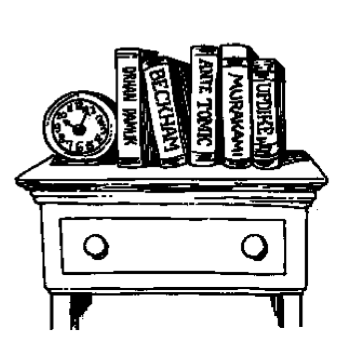Books about Town and Country
There are not that many of us Croats and, consequently, our literature is small. Yet I get the feeling that every second Croat is a writer, a poet at least. Once the warm season gets under way the city starts buzzing with book promotions. Writing in Croatia is a hard, misunderstood, and usually unpaid job; poetry collections of younger poets sell perhaps ten copies. Older poets, our laureates, manage to sell between a hundred and two hundred copies. Fiction is slightly different: the last ten years have brought an unexpected blossoming of young, macho literature dealing mainly with urban themes—postwar hopelessness, political satire, sex, drugs, and rock and roll. What I mean by macho literature is that this literature is still thought of as masculine. When we think about literature we think of a man, and not just any man—he seems slightly bohemian or could pass as a punk rocker. Ideally he drinks beer and isn’t convinced by capitalism. We expect him to be unkempt and overslept and underdressed.
Female writers who make it here, the two or three of them, do it by writing within their role. “We women know how to deal with you men” is the only available angle. If a woman understands the world as something apart from the arena in which the masculinum and femininum do battle she has no shot as a publishing author.
And then there is the rural novel. Although viable writing is most at home set in the uglyish areas of our capital, one of Croatia’s favorite books in the last five years is set in the country. It’s Don Quixote retold, and is full of cheerful types who tend to scratch their ears with car keys. A sentence to that effect was one of the most quoted bits of anything recently written in Croatian. The author, Ante Tomi´c, is a good friend of mine, from Dalmatia. He has a big nose and a pleasant voice, and is at least two heads taller then me, but in his heart he’s as gentle as a little girl. Apart from making Croats laugh with novels that sell 10,000 copies or more, dizzyingly, he also writes a daily column in the Jutarnji List (“Morning Paper”), as he has for years. Most young writers must be writer-journalists. No author other than Tomi´c, and perhaps Miljenko Jergovi´c, another one of our young classics, could afford not to take the work.
Jergovi´c is a Sarajevan living in Zagreb, which for me recalls the Sting song “An Englishman in New York.” He sells rather well and has been translated into enough languages to make...
You have reached your article limit
Sign up for a digital subscription and continue reading all new issues, plus our entire archives, for just $1.50/month.
Already a subscriber? Sign in





